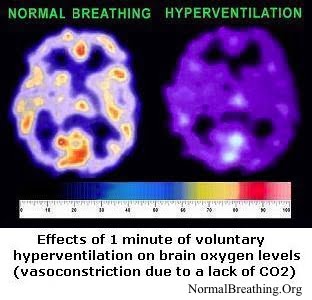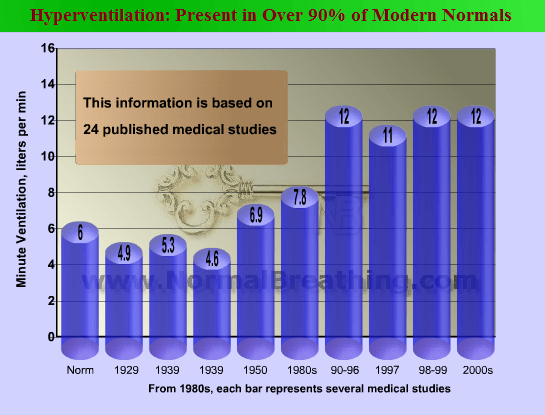- Updated on August 13, 2020
![]() By Dr. Artour Rakhimov, Alternative Health Educator and Author
By Dr. Artour Rakhimov, Alternative Health Educator and Author
- Medically Reviewed by Naziliya Rakhimova, MD
Heart palpitation causes
 Causes of heart palpitations relate to these fundamental parameters:
Causes of heart palpitations relate to these fundamental parameters:
– anxiety and stress (living in a survival mode)
– a lack of exercise with nose breathing and sweating
– electrical potential of the human body
– heart oxygenation
– CO2 levels in the heart tissue
– calcium availability in blood and cells.
 When the human body is electrically insulated from the Earth (as in more than 95% of modern people), the body usually accumulates a large positive charge. This negatively influences work of the part of the heart muscle (the sinoatrial node) that stimulates the heart muscle and regulates its contractions. In addition, a recent clinical study discovered, according to its title, that “Earthing (grounding) the human body reduces blood viscosity – a major factor in cardiovascular disease” (Chevalier et al, 2012).
When the human body is electrically insulated from the Earth (as in more than 95% of modern people), the body usually accumulates a large positive charge. This negatively influences work of the part of the heart muscle (the sinoatrial node) that stimulates the heart muscle and regulates its contractions. In addition, a recent clinical study discovered, according to its title, that “Earthing (grounding) the human body reduces blood viscosity – a major factor in cardiovascular disease” (Chevalier et al, 2012).
Apart from a lack of grounding, modern people have reduced CO2 and O2 levels in the heart muscle due to their heavy (deep) breathing at rest. Overbreathing reduces blood flow to all vital organs. People suffer from overbreathing especially at night or during sleep.
Calcium deficiency or excess can play some role for this symptom. More details about the role of calcium are provided below.
When people start learning the Buteyko method but do not do enough physical exercise with nose breathing and good sweating, they can experience or get heart palpitations, especially at night. Having more good exercise, or using Frolov or DIY breathing devices solve this problem. Getting higher CPs is the ultimate treatment option (see below).
Since people breathe twice more than the medical norm (and almost 3 times more than breathing of people living 100 years ago), humans have low CO2 levels in the heart tissue. This makes nerve cells over-excited (see links related to CO2 effects below).
Hyperventilation, apart from causing low CO2, also leads to the spasm of arteries and arterioles (due to arterial hypocapnia) and reduced oxygen delivery to all vital organs, the brain and heart included.
Since lowest body oxygenation (due to heaviest and fastest breathing) takes place after meals and at night, it is obvious that most people suffer from heart palpitations after eating meals and at night.
How to stop heart palpitations (even at night)
There are 2 main methods to prevent heart palpitations. Many people are able to stop their heart palpitations using grounding of the human body (see Earthing webpage for more details). Grounding for sleep is an excellent remedy to stop heart palpitations at night. (Even a simple transition into a sitting position at night can prevent this symptom.)
Those people who are deficient in calcium can prevent or eliminate heart palpitations with calcium supplementation. Taking 3-5 g of calcium per day (and this is safe), in divided doses with eating meals, helps to define if low calcium is the cause of heart palpitations. For more info about smart eating, see Major Nutrients Guide.
 Apart from Earthing, clinical observations by about 200 Soviet and Russian doctors practicing the Buteyko breathing method suggest that heart palpitations are a classic sign of hyperventilation. Heart palpitations disappear with breathing normalization. Most people predisposed to heart palpitations require a certain result for the body-oxygen test in order to be free from this symptom. You can find this number right below here as your bonus content.
Apart from Earthing, clinical observations by about 200 Soviet and Russian doctors practicing the Buteyko breathing method suggest that heart palpitations are a classic sign of hyperventilation. Heart palpitations disappear with breathing normalization. Most people predisposed to heart palpitations require a certain result for the body-oxygen test in order to be free from this symptom. You can find this number right below here as your bonus content.
The bonus content also provides answers to following questions: Can Buteyko exercises cause heart palpitations or make them appear, especially at night or during sleep? How to deal with this challenge then?
For many people getting 30+ s for the morning CP is enough to stop all palpitations, but some people may need up to 35 s and higher morning CPs to be free from this symptom.
Yes, Buteyko exercises can lead to the appearance of heart palpitations in some breathing students who have too little physical exercise and practice reduced breathing. The solutions are: 1) increase physical activity; 2) use breathing devices for some or all your breathing sessions (with reduced breathing in between).
[/sociallocker]
Application of resistive respiratory devices (such as the Frolov device, Samozdrav, Amazing DIY breathing device, and many others) provide faster recovery rates in comparison with the classical Buteyko method. You can also treat and stop heart palpitations with more physical exercise (daily) with strictly nasal breathing and perspiration. Doing exercise during the day stops heart palpitations at night due to a variety of effects including higher metabolism, slower breathing, and better circulation within the heart muscle.
– This page in Spanish: Palpitaciones del corazón: causas y tratamiento.


